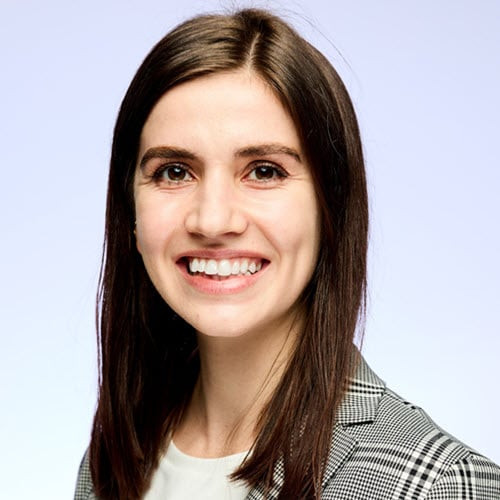After years of rigorous medical school and residency, some doctors choose to pursue even more specialized training. These dedicated physicians are known as fellows. But what exactly is a fellow doctor? In the landscape of medical careers, the term “fellow” signifies a distinct step in a physician’s journey. This article will explore the role of a fellow doctor, outlining their responsibilities, the path to becoming one, and how they differ from residents and attending physicians. If you’re considering a career in medicine or simply curious about the levels of medical training, understanding what a fellow doctor is is crucial.
Medical fellowships represent an advanced stage of medical education, allowing physicians to hone their skills and knowledge within a specific subspecialty. These programs, typically lasting one to three years and accredited by the Accreditation Council for Graduate Medical Education (ACGME), are highly competitive and sought after by doctors aiming for expertise in fields like cardiology, oncology, or infectious diseases. For those navigating the complexities of the medical field, grasping the nuances of fellowship training is essential. Let’s delve into the world of medical fellowships and understand the vital role fellow doctors play in healthcare.
Decoding the Role: What Does a Medical Fellow Do?
Medical fellows are fully licensed physicians who have already completed medical school and residency. They are not beginners; instead, they are experienced doctors choosing to specialize further. Think of it as becoming an expert within an expert field. During their fellowship, they immerse themselves in a chosen subspecialty, working closely with attending physicians to gain advanced skills and in-depth knowledge.
The daily tasks of a medical fellow are diverse and depend heavily on their chosen subspecialty. However, some common responsibilities include:
- Patient Care: Fellows are actively involved in seeing patients, both in clinics and hospitals. They diagnose and manage complex medical conditions, often dealing with more intricate cases than residents.
- Diagnostic Expertise: Ordering and interpreting advanced diagnostic tests is a key part of a fellow’s role. They develop a refined ability to analyze medical data and make accurate diagnoses.
- Performing Procedures: Many fellowships involve hands-on procedural training. For example, a cardiology fellow might perform cardiac catheterizations, while a gastroenterology fellow could conduct endoscopies.
- Treatment Planning: Fellows are crucial in developing and implementing treatment plans. They prescribe medications and manage comprehensive care strategies for patients with specialized needs.
- Patient and Family Counseling: Communicating complex medical information to patients and their families is a vital skill for fellows. They provide counsel, support, and education about diagnoses and treatment options.
- Research and Teaching: Beyond clinical duties, many fellows engage in medical research, contributing to advancements in their field. They also often play a role in teaching and mentoring medical students and residents, contributing to the education of the next generation of doctors.
To illustrate, consider a cardiology fellow. Their duties might include performing intricate procedures like cardiac catheterizations, managing patients with advanced heart failure, and researching new treatments for heart disease. Alternatively, a pediatric oncology fellow might focus on developing innovative therapies for childhood cancers in a research-intensive environment. Regardless of the subspecialty, the common thread is advanced training and a commitment to mastering a specific area of medicine.
 medical-fellow-discussing-medication
medical-fellow-discussing-medication
The Journey to Fellowship: How to Become a Medical Fellow
The path to becoming a medical fellow is long and demanding, requiring dedication and years of rigorous education and training. Here are the essential steps:
- Earn a Bachelor’s Degree: The undergraduate major is less critical than academic excellence. A strong GPA and completion of pre-medical science courses are crucial for medical school admissions.
- Excel in the MCAT: The Medical College Admission Test (MCAT) is a standardized exam evaluating problem-solving, critical thinking, and scientific knowledge. A competitive MCAT score is vital for medical school applications.
- Complete Medical School: Medical school is a four-year program. The initial two years focus on classroom learning, covering foundational medical sciences. The latter two years involve clinical rotations in hospitals, providing hands-on experience in various medical specialties.
- Match into a Residency Program: Residency is a post-medical school training program lasting from three to seven years, depending on the chosen specialty. Residents gain supervised clinical experience in their chosen medical field. Completing residency makes a doctor board-eligible to practice in their specialty.
- Apply and Be Accepted into a Fellowship: After residency, physicians can apply for fellowships. These are competitive programs, lasting one to three years, offering specialized training in a subspecialty. Acceptance requires a strong academic record, residency performance, and compelling letters of recommendation.
To enhance your chances of securing a fellowship, consider these tips:
- Passion-Driven Specialty Choice: Choose a subspecialty that genuinely interests you. Fellowship training is intensive, and passion fuels perseverance.
- Networking: Engage with physicians and researchers in your field. Attend conferences and professional meetings to learn about fellowship opportunities and build connections.
- Research Involvement: Research experience strengthens your fellowship application. Seek research opportunities during medical school and residency.
- Publishing Research: Publishing your research in peer-reviewed journals significantly boosts your competitiveness as a fellowship applicant.
- Strong Recommendations: Cultivate relationships with mentors and program directors who can write strong letters of recommendation highlighting your skills and potential.
Becoming a medical fellow is a significant achievement, marking a physician’s commitment to advanced expertise and specialized patient care.
Fellow vs. Resident: Understanding the Training Hierarchy
In the medical training hierarchy, residents and fellows occupy different but crucial roles. The primary distinction lies in their level of training and experience.
Medical Residents: Residents are physicians who have recently graduated from medical school and are undergoing specialty training. Residency programs, lasting three to seven years, provide broad training in a medical specialty like internal medicine, surgery, or pediatrics. After residency, a doctor is qualified to practice independently within their chosen specialty and is board-eligible.
Medical Fellows: Fellows are physicians who have completed residency and are pursuing further, more focused training in a medical subspecialty. Fellowships, typically one to three years long, delve into niche areas within a specialty. For instance, a physician completing an internal medicine residency might pursue a cardiology fellowship to specialize in heart conditions or a gastroenterology fellowship to focus on digestive system disorders. Fellows bring a higher level of expertise and experience compared to residents.
| Feature | Medical Resident | Medical Fellow |
|---|---|---|
| Training Stage | Post-Medical School, Specialty Training | Post-Residency, Subspecialty Training |
| Experience Level | Entry-level physician in a specialty | Experienced physician specializing further |
| Program Length | 3-7 years (Residency) | 1-3 years (Fellowship) |
| Focus | Broad Specialty Training | Highly Specialized Subspecialty Training |
| Supervision | Supervised by Attending Physicians and Senior Residents | Supervised by Attending Physicians, may supervise residents |
Fellowship Duration: How Long is a Medical Fellowship?
The length of a medical fellowship varies depending on the subspecialty. Generally, fellowships range from one to three years. The specific duration is determined by the complexity of the subspecialty and the depth of training required. Program structure can also influence fellowship length, with some programs offering extended durations for research-focused training or highly specialized skill development.
Here are examples of typical fellowship durations across different specialties:
- 1-Year Fellowships: Sports Medicine
- 2-Year Fellowships: Endocrinology, Hematology, Infectious Disease, Nephrology, Rheumatology, Allergy and Immunology
- 2-3 Year Fellowships: Pulmonology
- 3-Year Fellowships: Cardiology, Gastroenterology
It’s important to note that these are typical durations, and specific programs may vary. If you are considering a fellowship, researching specific programs and contacting program directors is advisable to understand the exact duration and training structure.
Medical Fellowship Salary: What to Expect
Medical fellows in the US typically earn an annual salary ranging from $60,000 to $70,000. However, this figure is influenced by several factors:
- Geographic Location: Fellows in high-cost-of-living areas, such as major metropolitan cities like New York City or San Francisco, generally receive higher salaries to compensate for living expenses. Conversely, salaries might be lower in more affordable regions.
- Year of Training: Similar to residency, fellowship salaries often increase incrementally with each year of training. Fellows in their later years of fellowship typically earn slightly more than those in their first year.
- Institution and Funding: Salaries can also vary based on the institution offering the fellowship and its funding structure. Larger, well-funded academic medical centers might offer slightly higher salaries compared to smaller programs.
While fellowship salaries are modest compared to attending physician salaries, it’s important to remember that fellows are still in training and gaining invaluable specialized expertise that will significantly enhance their earning potential in the long run.
Fellow vs. Attending: Independent Practice vs. Supervised Training
The distinction between a medical fellow and an attending physician is significant and centers around their level of training and independence in practice.
Attending Physician: An attending physician has completed all medical training, including medical school, residency, and potentially fellowship. They are fully licensed and board-certified (or board-eligible) to practice medicine independently in their specialty. Attending physicians are responsible for the ultimate care and treatment of patients. They supervise residents and fellows, providing guidance and oversight in complex cases, but they also practice independently.
Medical Fellow: A medical fellow, while an experienced physician, is still in a training phase, albeit a highly specialized one. Fellows are supervised by attending physicians. While fellows have significant patient care responsibilities and make critical medical decisions, their work is ultimately reviewed and overseen by attending physicians. The fellowship is a structured learning environment designed to develop subspecialty expertise under mentorship.
In essence, attending physicians are independent practitioners and often serve as educators and supervisors, while fellows are advanced trainees learning to become subspecialists under the guidance of attending physicians.
Life After Fellowship: Career Paths for Fellowship-Trained Doctors
Completing a medical fellowship opens diverse and rewarding career paths. Fellowship-trained physicians are highly sought after for their specialized expertise. Common career options include:
- Hospital or Clinic Practice: The majority of fellowship graduates pursue clinical practice in hospitals or clinics. Their specific roles vary based on their subspecialty, but they provide specialized care for patients with complex medical needs.
- Academic Medicine: Academic careers involve working in universities and teaching hospitals. Academic physicians educate medical students and residents, conduct research, and publish scholarly articles, contributing to medical knowledge and training future doctors.
- Private Practice: Some fellows establish their own private practices. This path requires entrepreneurial skills in addition to medical expertise, as it involves managing a business.
- Public Health: Public health careers focus on improving community health on a broader scale. Physicians in public health develop and implement programs to address public health issues and promote wellness.
- Pharmaceutical Industry: The pharmaceutical industry offers opportunities to contribute to drug development and research. Physicians in this sector may be involved in clinical trials, drug evaluation, and medical affairs.
The career path after fellowship is highly personalized and depends on individual interests and goals. For example, a cardiology fellow specializing in electrophysiology might choose to establish a private practice focused on heart rhythm disorders or join an academic medical center to conduct research and teach. Similarly, a gastroenterology fellow with advanced endoscopy training could join a research institution to innovate endoscopic procedures or become an attending physician specializing in advanced endoscopy.
 medical-fellow-discussing-history
medical-fellow-discussing-history
Fellowship vs. PhD: Distinct Paths of Advanced Education
It’s important to distinguish between a medical fellowship and a PhD. While both represent advanced training, they serve different purposes and are pursued in different fields.
PhD (Doctor of Philosophy): A PhD is a doctorate degree awarded after rigorous study and research in a university setting. PhD programs exist in diverse fields, including sciences, humanities, and social sciences. The primary focus of a PhD is to train individuals for research and academic careers. PhD candidates conduct original research, write a dissertation, and contribute to their field of study through scholarly work.
Medical Fellowship: A medical fellowship is a post-doctoral training program specifically for physicians. It provides specialized clinical training in a medical subspecialty after residency. The goal of a fellowship is to prepare doctors for expert clinical practice in a focused area of medicine. While some fellowships incorporate research components, the primary emphasis is on advanced clinical skills and patient care.
| Feature | PhD | Medical Fellowship |
|---|---|---|
| Field | Broad range of academic disciplines | Medicine (Subspecialty) |
| Focus | Research and Academic Career | Specialized Clinical Practice |
| Degree Type | Doctoral (Research-oriented) | Post-Doctoral (Clinical Training-oriented) |
| Prerequisites | Bachelor’s or Master’s Degree | MD/DO Degree and Residency Completion |
| Career Goal | Research Scientist, Professor, Academician | Specialist Physician, Clinical Expert |
Why Pursue a Fellowship? The Motivations Behind Specialization
Physicians choose to undertake fellowships for various compelling reasons, all centered around professional growth and enhanced patient care:
- Specialized Expertise: Fellowships offer the opportunity to gain highly specialized skills and in-depth knowledge in a specific area of medicine. This advanced expertise is crucial for managing complex and challenging medical cases and staying at the forefront of medical advancements.
- Enhanced Job Prospects: Fellowship training significantly increases a physician’s attractiveness to employers. Hospitals and healthcare facilities highly value fellowship-trained physicians for their specialized skills, making them more competitive in the job market.
- Research Skill Development: Many fellowships incorporate research opportunities. This allows physicians to develop and refine their research abilities, contributing to medical innovation and expanding their areas of expertise. Fellowship training provides a structured environment to become proficient in research methodologies and contribute meaningfully to medical science.
Fellowship Trained vs. Board Certified: Defining Credentials
“Fellowship trained” and “board certified” are related but distinct credentials for physicians.
Fellowship Trained: “Fellowship trained” indicates that a physician has completed a fellowship program, signifying advanced training in a medical subspecialty after residency. Fellowship training demonstrates a commitment to specialized expertise beyond general specialty training.
Board Certified: “Board certified” means a physician has passed an examination administered by a specialty board accredited by the American Board of Medical Specialties (ABMS). Board certification signifies that a physician has met rigorous standards of knowledge, skills, and experience in their specialty. Board certification is often required for independent practice in certain specialties.
It’s possible for a doctor to be both fellowship trained and board certified. For instance, a physician might complete an internal medicine residency, then a cardiology fellowship, and subsequently become board certified in cardiology by passing the cardiology board exams. However, not all fellowships lead to board certification, particularly in emerging or highly specialized subspecialties where board certification might not yet exist.
Medical Fellowship: An Integral Part of Medical Education
Yes, a medical fellowship is indeed considered a crucial component of a doctor’s medical education. Fellowships, accredited by the ACGME, provide structured, advanced training in a medical subspecialty. They build upon the foundation of medical school and residency, offering in-depth clinical experience, research opportunities, and teaching exposure. Fellowships are designed to equip physicians with the specialized knowledge and skills needed to become independent subspecialty practitioners. While not all fellowships offer board certification, they universally represent a significant advancement in a physician’s medical education and expertise.
 fellow-with-patient-in-hospital
fellow-with-patient-in-hospital
Can You Pursue a Fellowship Without Residency? The Training Pathway
No, it is not possible to undertake a medical fellowship without first completing a medical residency. Fellowships are postgraduate training programs specifically designed for physicians who have already finished residency and medical school. Residency provides the foundational specialty training that is a prerequisite for the advanced subspecialty training offered in fellowships. Eligibility for fellowships in the US and Canada requires completion of a recognized medical residency program. Some fellowships may have additional prerequisites, such as USMLE scores or research experience, but residency completion is always a fundamental requirement.
Embarking on Your Medical Journey
Understanding the role of a medical fellow provides valuable insight into the comprehensive path of medical training. From medical school to residency and then potentially fellowship, the journey is rigorous and dedicated to producing highly skilled and specialized physicians. If you are inspired to begin your medical career, consider exploring opportunities at leading medical schools like the University of Medicine and Health Sciences (UMHS).
To start your application process, please visit: Apply Now
For a comprehensive overview of our medical programs, please see our Caribbean medical school overview page.
For any questions or to connect with our admissions team, please contact our admissions officers.
Explore Related Articles:
 becoming-an-obgyn becoming-an-obgyn |
How to Become an Ob-Gyn? |
|---|---|
 D.O.-and-M.D.-doctors D.O.-and-M.D.-doctors |
DO versus MD: Understanding the Differences |
 internist-and-family-medicine-doctor internist-and-family-medicine-doctor |
Internal Medicine vs. Family Medicine: A Comprehensive Comparison |

Authored by Callie Torres, Resident Physician & Medical Writer
Callie Torres is a resident physician at a top-tier Midwestern institution. She is a freelance health and medical writer and an author of numerous peer-reviewed medical articles. She also serves as a Captain in the United States Air Force.
